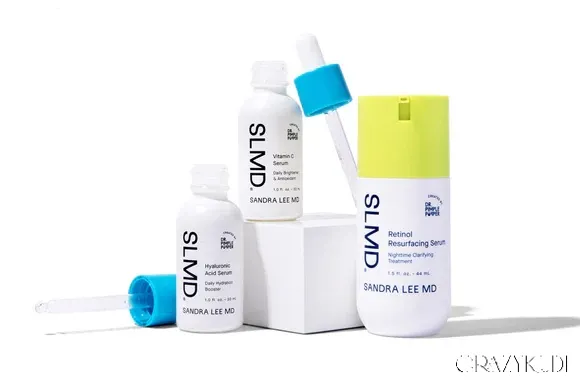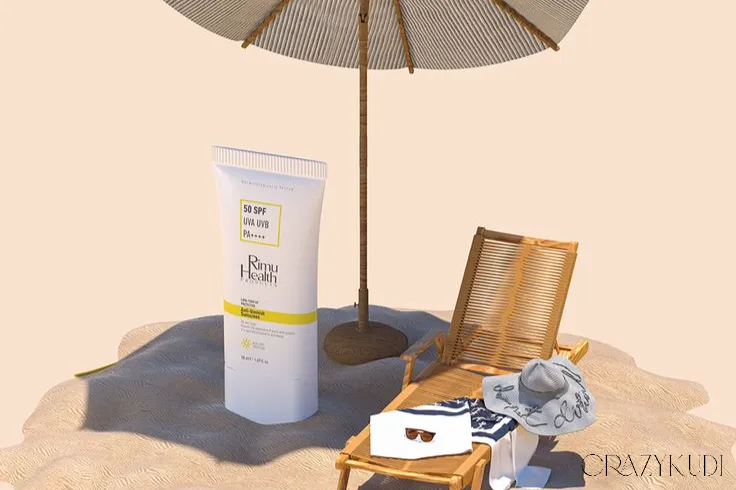As a board-certified dermatologist, I see countless patients navigating the often overwhelming world of skincare. Influencers tout miracle ingredients, shelves overflow with multi-step routines, and the pressure to achieve flawless, poreless skin seems immense. It's easy to get caught up in the latest trends, but amidst this noise, have you ever stopped to ask: What does my skin actually need to be truly healthy?
"Healthy skin" isn't just about looking good in a selfie; it's about optimal function. It's about skin that is resilient, comfortable, adequately hydrated, and effectively performing its primary job: protecting your body from the environment. Achieving this doesn't necessarily require a dozen expensive products or complicated steps. Instead, it relies on understanding and consistently meeting your skin's fundamental needs.
Let's strip away the marketing hype and get back to the dermatological basics of what your skin requires to thrive.
Pillar 1: Protection (The Non-Negotiable Shield)
This is paramount. Your skin is constantly exposed to environmental aggressors, the most damaging of which is ultraviolet (UV) radiation from the sun.
- What Skin Needs: Daily, consistent protection from UVA and UVB rays.
- Why: UV radiation is the primary driver of premature aging (wrinkles, sagging, dark spots) and the leading cause of skin cancer. This damage is cumulative and occurs year-round, even on cloudy days and through window glass (UVA).
- How to Provide It: Use a Broad-Spectrum Sunscreen with SPF 30 or higher every single morning, 365 days a year, applied generously. Reapply every two hours if outdoors. Supplement with sun-protective clothing (UPF), wide-brimmed hats, and sunglasses. This is the single most impactful step for long-term skin health and appearance.
Also read: Our Skin Under Pressure: A Dermatologist Explains Climate Change's Impact on Skin Health
Pillar 2: Gentle Cleansing (Respecting the Barrier)
Cleansing is necessary to remove dirt, oil, pollutants, and makeup, but how you cleanse is critical.
- What Skin Needs: Removal of surface impurities without stripping away natural oils or disrupting the delicate skin barrier (the stratum corneum).
- Why: Harsh cleansing damages the skin barrier, leading to dryness, irritation, sensitivity, inflammation, and potentially worsening conditions like acne or eczema. A compromised barrier cannot effectively retain moisture or protect against irritants.
- How to Provide It: Use a mild, gentle cleanser suited to your skin type (creamy/lotion for dry/sensitive, gentle foaming/gel for oily). Avoid harsh soaps, abrasive scrubs for daily use, and overly hot water. Cleanse primarily in the evening; many people only need a water rinse in the morning.
Pillar 3: Hydration & Moisturization (Supporting the Barrier)
Hydrated skin is healthy skin. This involves both internal hydration and topical support.
- What Skin Needs: Adequate water content within its layers and a supported lipid barrier to lock that moisture in.
- Why: Proper hydration keeps skin cells plump, flexible, and functioning correctly. A well-supported barrier prevents excessive transepidermal water loss (TEWL), maintaining hydration levels and protecting against external factors. Dehydrated skin looks dull and feels tight; a compromised barrier leads to sensitivity and irritation.
- How to Provide It:
- Internally: Drink sufficient water throughout the day.
- Topically: Use a moisturizer suited to your skin type daily (morning and night). Look for ingredients that support the barrier and hydrate:
- Humectants: Draw water in (e.g., hyaluronic acid, glycerin).
- Emollients: Smooth skin (e.g., squalane, fatty acids).
- Occlusives: Seal moisture in (e.g., ceramides, petrolatum, dimethicone). Ceramides are particularly crucial lipids for barrier health.

Pillar 4: Nourishment & Healthy Lifestyle (Inside-Out Health)
Your skin reflects your overall health.
- What Skin Needs: Essential nutrients, adequate rest, and minimized chronic stress.
- Why:
- Diet: Provides building blocks (proteins), antioxidants (vitamins C, E), and essential fatty acids needed for cell function and repair.
- Sleep: Critical repair and regeneration time for skin cells; lack of sleep increases cortisol and inflammation.
- Stress Management: Chronic stress elevates cortisol, which can break down collagen, impair barrier function, trigger inflammation, and worsen conditions like acne and eczema.
- How to Provide It: Eat a balanced diet rich in whole foods. Prioritize 7-9 hours of quality sleep. Find healthy ways to manage stress (exercise, mindfulness, hobbies).
Beyond the Basics: Targeted Treatments (Only If Needed)
Once you have consistently mastered these four foundational pillars, then you might consider adding targeted treatments if you have specific concerns (like persistent acne, significant hyperpigmentation, or advanced signs of aging). These could include:
- Retinoids: For acne, texture, and anti-aging (introduce slowly and carefully).
- Antioxidants (like Vitamin C): For extra environmental protection and brightening.
- Exfoliants (AHAs/BHAs): For specific texture or pore concerns (use judiciously, not daily for most).
But remember, these are supplementary. They work best and safest when built upon a foundation of protected, gently cleansed, well-hydrated, and internally supported skin. Loading up on actives without mastering the basics often leads to irritation and barrier damage, undermining your goals.
Also read: Think You Know Sun Protection? A Dermatologist Shares 17 Essential Tips
What Healthy Skin Isn't
It's crucial to have realistic expectations. Truly healthy skin isn't about achieving airbrushed perfection. It's not about being poreless, completely line-free forever, or having zero imperfections. Healthy skin looks like real skin – it has texture, pores, and changes naturally with age. The goal is optimal function and resilience, not an unattainable filter effect.
Conclusion:
Don't let the overwhelming skincare market distract you from what truly matters. Your skin fundamentally needs Protection, Gentle Cleansing, Hydration/Barrier Support, and overall Healthy Lifestyle habits. Focus on consistently meeting these core needs first. Master this foundation, and you'll be well on your way to achieving truly healthy, resilient skin that functions optimally and looks its natural best for the long haul. If you have persistent concerns or need help navigating specific conditions, consult a board-certified dermatologist for personalized guidance.

